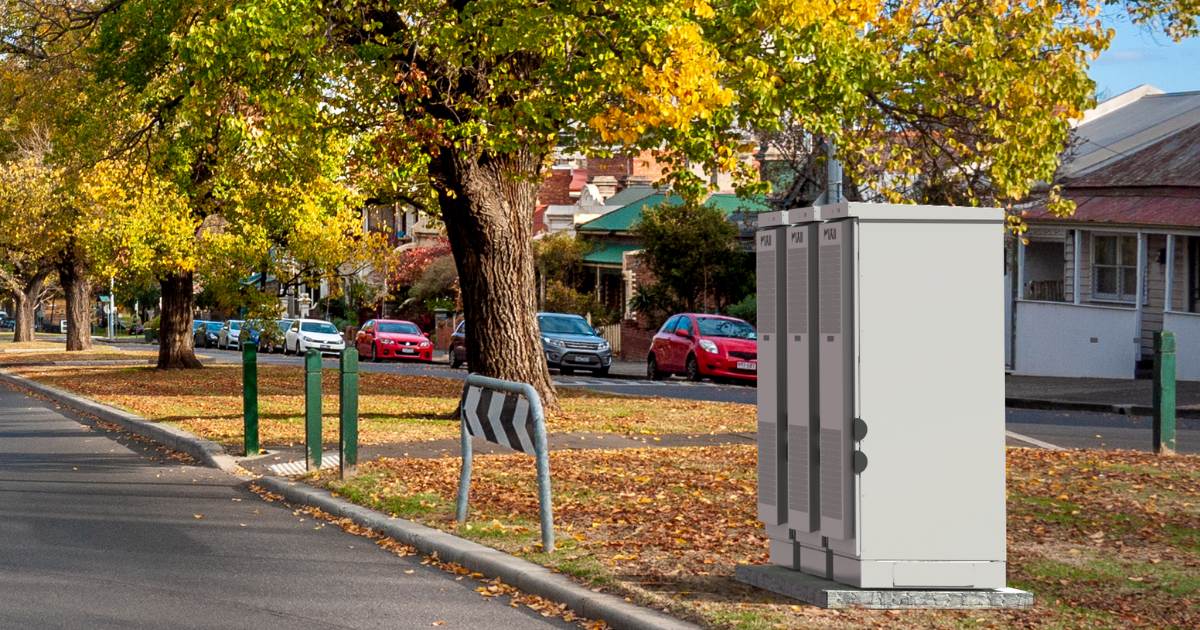
Yarra Energy Foundation has announced its chosen energy storage solution for a community battery project in Melbourne’s inner-north.
Back in August, the Victorian Government awarded grants to support community energy storage studies and the construction of neighbourhood-scale batteries. YEF is among 16 organisations sharing in $3.68 million in grants under the Neighbourhood Battery Initiative.
The organisation has completed months of analysis and community consultation, settling on a battery supplier – and it’s not Tesla. YEF has selected a Pixii PowerShaper for its community battery pilot project in the City of Yarra.
Norway-based Pixii produces compact, modular and scalable energy storage in capacities ranging from 3kW to 1MW. Its flagship product is the Pixii PowerShaper. Each cabinet can house up to 65kWh of energy storage capacity and offers up to 30kW of power. The system includes the Pixii Gateway, which provides advanced monitoring and control applications as well as interoperability with the mains grid.
A PowerShaper datasheet can be accessed here.
Why The Pixii PowerShaper?
YEF Community Battery Project Manager Chris Wallin said among the potential solutions analysed, the Pixii PowerShaper ranked highest in terms of energy density and small footprint.
“It was also the quietest, making it ideal for densely populated inner-urban environments,” said Mr. Wallin. ” We also discovered that it had by far the best environmental footprint, made from 95% recyclable battery cells produced with 100% renewables.”
The battery modules used for the Pixii PowerShaper are produced by Sweden’s Polarium, which has established a partnership with lithium-ion cell manufacturer Northvolt.
Earlier this month, Northvolt announced it had produced its first battery cell using 100% recycled nickel, manganese and cobalt. Northvolt intends scaling-up recycling capacities to achieve its goal of producing cells with 50% recycled material by 2030. The company says cells produced with recycled metals demonstrate performance equal to those manufactured using “freshly-mined” metals.
Northvolt is in the final stages of constructing a gigafactory in Skellefteå, Sweden, which will be powered by 100% renewables. It’s expected the factory will be able to produce 60GWh of cells a year.
YEF’s Pixii’s PowerShaper battery energy storage system will be 100kW/250kWh and came in below the organisation’s benchmark of $1,000/kWh. The system will be installed as part of the Yarra Community Battery project in the middle of next year.
The project – being carried out through a collaboration between YEF, CitiPower, City of Yarra, and the Australian National University – will demonstrate the community support, operational, and technical viability of community batteries[1.Which have already been successfully trialed in various locations elsewhere, particularly in Western Australia.].
Why Are Community Batteries Important?
The uptake of solar in Australia by households and businesses has been phenomenal. Increasing amounts of solar energy generated by rooftop panels pouring into the grid is a great thing, but also brings some challenges. At times in some locations, there is too much of it and this can potentially destabilise local grids.
In some parts of Victoria, new solar owners have been hit with zero-export limits – meaning they are unable to export surplus electricity their solar panels generate to the mains grid.
While the situation has been improving thanks to network tweakery, it should further improve with the implementation of community batteries acting as a “solar sponge” to soak up electricity when it’s not needed and discharging that stored energy when it is. This will not only help avoid potential problems, but actually improve energy security and grid stability at a local level – and enable even more solar to be installed.

 RSS - Posts
RSS - Posts



If 40% of the grid is non industrial, ie home power, then 40% from the grid leaves 60% still needed.
If the home feed in is full capacity after home needs including topping up battery,
then 60% – 40% = 20% fron power generators required by industry during daily industrial demand.
If industry can supply from its own rooftops and its own battery then power generators are not needed.
NO MONEY FOR POWER GENERATORS.
EV car battery 100kwh plugged into the grid is a huge home battery.
Daily drive 7wkh top up, home night need 10kwh, rooftop 33kwh, home can trade electric power with grid.
You can see why the LNP Federal government killed the EV Ute.
500kwh community battery can connect to 250 homes.
EV car battery 100kwh.
Home petrol costs, say 7kwh per litre equivalent means huge financial benefit to home all year.
Home power costs = nothing all year.
Home feed in income all year and trading with grid
= huge cash flow to home all year.
The EV Ute and its free huge battery for its 500 mile weekend trip will mean the grid will be 100% free for industrial needs.
Massive extra power transmission lines are not needed except for extra businesses purposes.
The grid becomes the electricity power ‘concentrator’ and not so much the ‘distributor’.
The money is in the grid.
8.3 MILLION homes in Australia, all with rooftop solar pv, 6.6kw, 33kwh every day.
The weekend Ute is the key.
The automatic ‘plug in’ is the next ‘killer gizmo’.
20 million vehicles in Australia and
1 million new vehicles every year in Australia.
6.5 million new EV vehicles sold worldwide last year.
EV vehicles growth in Australia could even be 2 million every year.
90% of Australia petroleum is imported every year.
Petroleum $2.00 a litre at the pump.
Australian Petroleum should be a strategic military reserve.